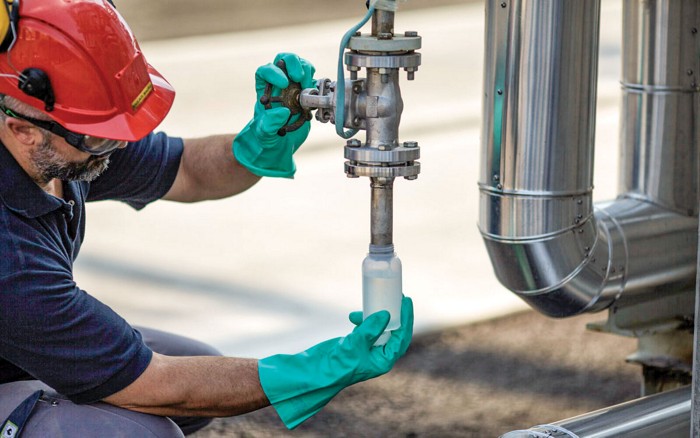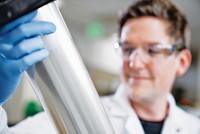Advertisement
Grab your lab coat. Let's get started
Welcome!
Welcome!
Create an account below to get 6 C&EN articles per month, receive newsletters and more - all free.
It seems this is your first time logging in online. Please enter the following information to continue.
As an ACS member you automatically get access to this site. All we need is few more details to create your reading experience.
Not you? Sign in with a different account.
Not you? Sign in with a different account.
ERROR 1
ERROR 1
ERROR 2
ERROR 2
ERROR 2
ERROR 2
ERROR 2
Password and Confirm password must match.
If you have an ACS member number, please enter it here so we can link this account to your membership. (optional)
ERROR 2
ACS values your privacy. By submitting your information, you are gaining access to C&EN and subscribing to our weekly newsletter. We use the information you provide to make your reading experience better, and we will never sell your data to third party members.
Biotechnology
Biomanufacturing draws hundreds of millions in investments
Fundraising at Bota Bio, Genomatica, and Antheia signals an upshift for commercial-scale synthetic biology
by Craig Bettenhausen
July 29, 2021
| A version of this story appeared in
Volume 99, Issue 28

Investors are betting more than $300 million that a handful of small firms can customize microorganisms and enzymes to make commercial chemicals better than conventional processes can.
Bota Bio, a start-up that engineers enzymes and live microbes to make small molecules, has raised $100 million in a series B funding round. The firm says it will use the money to improve and expand its system for transitioning projects from lab to pilot scale and expand its global workforce. Bota’s pipeline includes ingredients for consumer products, food, nutrition, and pharmaceuticals. In March, BASF’s venture capital arm also invested in Bota, which says it has raised $145 million total.
Genomatica built on the strength of recent deals to close a series C worth $118 million. In June, Cargill and the chemical distributor Helm licensed Genomatica’s 1,4-butanediol fermentation technology to build a $300 million plant in Iowa. Genomatica says it will use the money to scale up production and invest in new process technology.
And earlier this month, the biobased medicine start-up Antheia raised $73 million in a series B funding round. Antheia genetically engineers yeast strains to make them express active pharmaceutical ingredients or their starting materials. Rather than looking to displace ingredients made by chemical synthesis, the Stanford University spin-off is targeting medical ingredients that conventionally come from plants with unsteady or unsustainable supply chains, such as tropane alkaloids derived from plants in the nightshade family.
Past efforts to use biotechnology to produce industrial chemicals haven’t always succeeded, but two factors could allow these latest synthetic biology manufacturing efforts to succeed, according to Xiao Zhong, a senior analyst at Lux Research. The chemical industry is making a broad-based push for sustainability, and biobased materials and manufacturing fit most of the ways companies define the term. At the same time, gene editing is getting more precise and systematic, though it still struggles with what Zhong calls a “fat fingers problem” that makes it error-prone.
Zhong says these firms and others in the space now need to demonstrate that the platforms they’re building can scale consistently across different types of molecules, not just the first few hits they happened upon. “Is it serendipity, or do you have an approach where it always works?” he asks. “To do it right requires lots of capital.”
UPDATE
The photo caption was updated on July 29, 2021, to mention Novamont, the company that owns the factory shown.




Join the conversation
Contact the reporter
Submit a Letter to the Editor for publication
Engage with us on Twitter